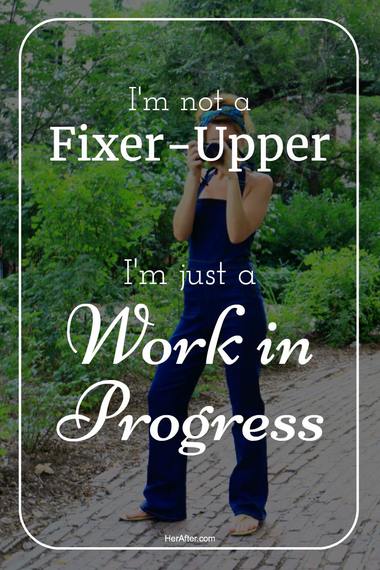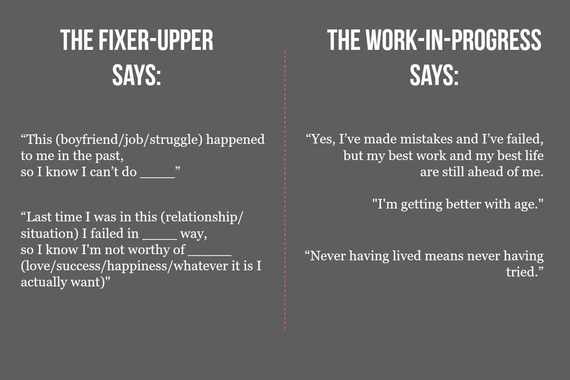As a women's self help writer, I get a lot of reader emails asking for advice on how to 'believe in yourself'. What I can say is that it's less about the accomplishment and more about the progress. Here's how I know:
It is believed to have taken Leonardo da Vinci four years to complete the Mona Lisa, though some historians say he may have been working on the piece until as late as 1517 (a total of near 15 years). Even more perplexing is that a contemporary of the artist at the time has said da Vinci walked away from the portrait before being satisfied with it. (via) A quote from Giorgio Vasari:
"after he had lingered over it four years, [he] left it unfinished".
Can you imagine an artist looking at the Mona Lisa and believing it to be 'unfinished'? Though Quite an interesting prospect, given that works like Mona Lisa and The Last Supper are regarded as some of the most respected and visited works of art in the world, isn't it?
The first devices using the essentials principles of rocket science are said to have occurred in 400 B.C. Three hundred years later, they were again employed by a more advanced Greek mastermind, only to be again experimented with, changed, and improved upon for a few hundred years until the first true rocket was invented by the Chinese in 1242. In the 1700's, Sir Isaac Newton came on the scene and offered his expertise to the science. (via)
Flash forward to present day when, even after a heart-wrenching disaster on national television in which the shuttle Challenger exploded upon blast off, sending the country into a state of shock, we are still working on, experimenting with, and completely fascinated by rockets and their possibilities...
What does this mean for you?
Even after walking away from it, da Vinci regarded one of the greatest pieces in art history as 'unfinished'.
Even after hundreds of years of study (and a few fatal disappointments), scientists are still committed to seeing how far humans can go.
Life is about progress, not accomplishment or failure.

via HerAfter.com
The Fixer-Upper vs The Work-in-Progress
Your past struggle has, no doubt, had implications on your present day. The difference between treating yourself like a fixer-upper instead of a work-in-progress is whether you let the past limit what you're able to do in the future.
The work-in-progress isn't afraid to try different things, isn't even afraid to fail, because she understands that only in attempting can a person understand if something is possible or right for her. The work-in-progress perspective understands that unless you experiment with something, you'll never understand how to perfect it. The work-in-progress looks forward at how they'll achieve what they desire, while the fixer-upper is busy looking backward at all the reasons their failures mean they can't move on. The work-in-progress understands that yes, life is messy and mistakes will happen and sometimes those mistakes might be embarrassing. But success often takes more than a day, a year, or even hundreds of years in the case of the rocket. When you're guided by the dream of the future rather than the pain of the past, incredible things are possible.
The only thing impossible is for everyone else to understand the path that you are on. Don't worry if other people can't understand the areas in which you experiment to find your best self, your science for the rocket toward your potential. Only you can understand the method.
Believing in yourself all comes down to whether you believe more in your past or your future. If you believe in your past and your beliefs based on your past ("I'm not worthy" "I've failed" "I'm not good enough") limits you, and ensures you'll never reach a point where you believe in yourself enough to progress forward. Believing in your future means allowing mistakes of the past to be learning experiences, not barriers. Your understanding of what you're capable of must be based on openness, willingness, experimentation, possibility, rather than fear, the past, hurt, wounds, or anger.
So what does this have to do with da Vinci walking away after four - or 15 - years? Well, sometimes (and you might not be able to see it in the moment) walking away at the right time can offer divine solutions. It might not feel so hot when you're walking away from that relationship, or leaving that job, and feeling like you could have/should have offered it more or tried harder. But sometimes, if you listen to that guiding intuition, even when it looks like a mess in the moment, you can realize later that it all happened exactly as it should have, perfect in it's imperfections. An influential masterpiece that progresses in life, just like you.
More Practice:
Want to train your brain for more positive thinking?
Check out my new E-Course! Positive Affirmation Meditation.
Click HERE To learn more!
 Rachael Yahne is an award-winning blogger, writer, cancer survivor and inspirational speaker. She is also the author of Her Happier, Healthier After, an ebook guide that helps women find their purpose, feel more beautiful, and fall back in love with their lives.
Rachael Yahne is an award-winning blogger, writer, cancer survivor and inspirational speaker. She is also the author of Her Happier, Healthier After, an ebook guide that helps women find their purpose, feel more beautiful, and fall back in love with their lives.
Visit her website at HerAfter.com, and shop for her ebooks and online courses HERE.
